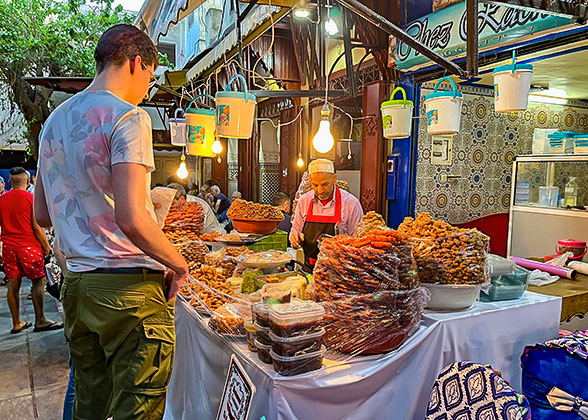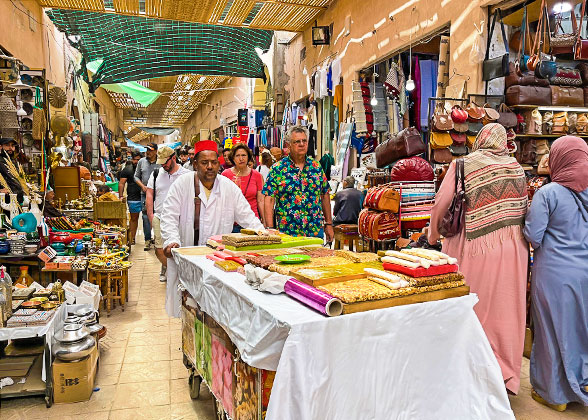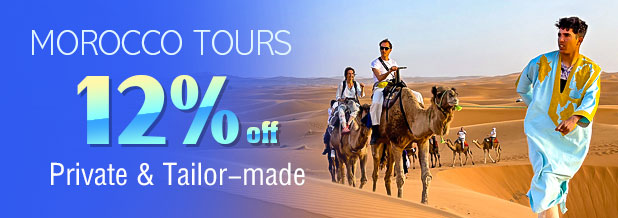Morocco Travel Tips
Visa:
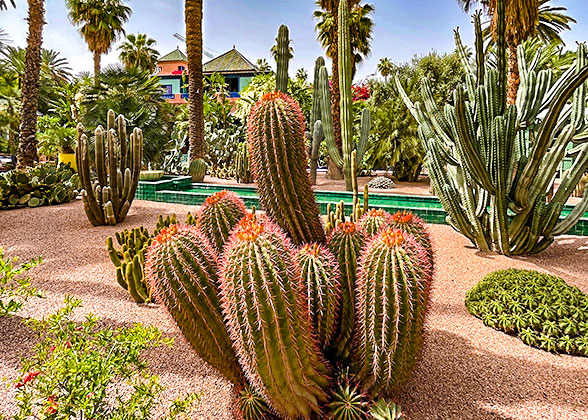
In Majorelle Garden, Marrakech
|
Money and Cost:
The official currency used in Morocco is Dirhams (MAD). The travel cost in Morocco is at a moderate level compared with that in world’s other countries or regions. Dh800-1,000 is fairly enough for daily cost. A middle-ranged hotel room with bathroom may cost Dh400-600 per day, and buying a sandwich probably needs Dh10–20. The expense for a four-hour bus trip would cost about Dh60. What's more, a top end standard trip may consume about Dh1500 or more per day. ATMS are widely available in the main travel destinations. Credit cards are accepted in most high-end restaurants and 3-4 stars hotels or above.
Tipping:
Tipping is a common practice of Moroccan culture and life. You may need to tip anyone who provides you with good service, such as waiters/waitresses, hotel staff, porters, tour guides and drivers. Actually, many upmarket restaurants in the tourist areas add an extra service fee for 10% to the bill, therefore check your bill before tipping. A gratuity for a service willingly rendered can make your life a lot easier, and the general standard is listed for your reference:
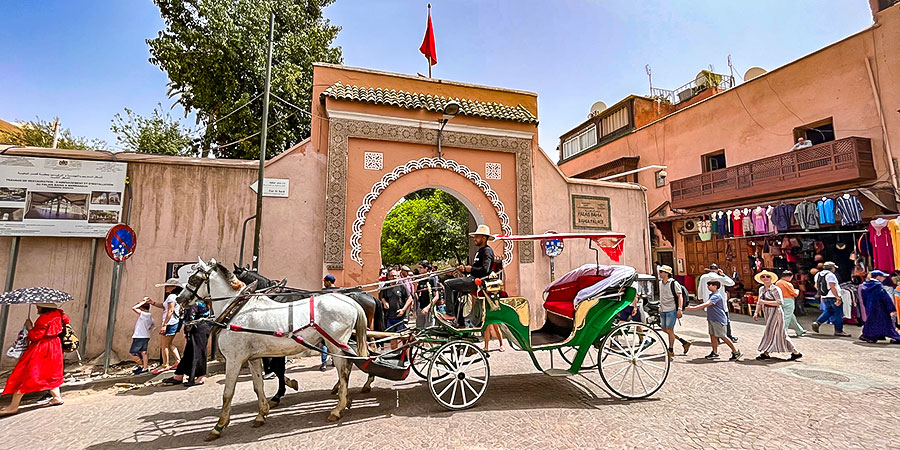
Experience Carriage Ride in Morocco
|
Baggage handlers Dh5
Car-park attendants: Dh3 to Dh5
Porters: Dh10 to Dh20
Hotel Maids: Dh10 to Dh15
Guide and Driver: Dh 120-150 per day
Public-toilet attendants: Dh1 to Dh2
Restaurant: 10% of the bill
Accommodation:
Morocco offers travelers a good variety of accommodations, ranging from trendy medina houses, 5-star hotels and beach resorts to unique desert kasbahs. For travelers on a budget, there are plenty of lower and middle range lodges. To live comfortably, there are superior choices including luxury star hotels, high-end riads and kasbahs. Riads are the most unique accommodation, which has a distinct Moroccan architecture style with grand, deluxe palaces and plunge pools. Kasbahs is usually picked as a base for exploring the dunes of Sahara, most of which look fancy and picturesque.
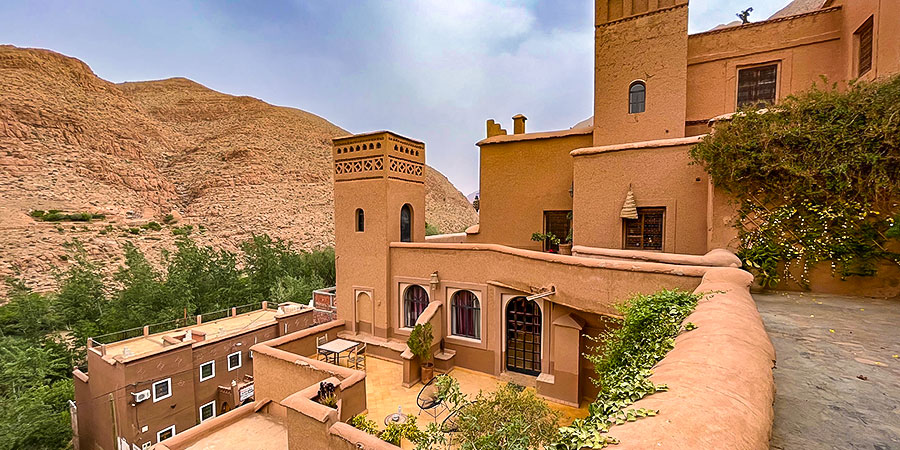
A Hotel near Sahara Desert, Morocco
|
Foods:
Moroccan food is quite diverse and vibrant in color and flavor. Most dishes take vegetables and whole grains as ingredients, which usually taste fresh and sweet. The most recommended food to try in Morocco include tajine, couscous, bastille, fried snails and chicken with preserved lemon & olives.
Language:
The official language of Morocco is Arabic, and other commonly used languages are French and Spanish. In tourist cities, most business owners and young people also speak English. Therefore, English is okay to handle the daily conversations about hotel, taxi and shopping.
|
|
|
What to Wear:
Though it is quite hot in summer of Morocco, you are still suggested to dress modestly. Due to respect for the customs of the Arab countries, women are advised to wear clothes that cover your knees and shoulders. Shorts, skirts and sleeveless vests should be avoided. The climate is warm and mild in winter, but there will be big temperature difference between daytime and evening in mountainous and desert areas. Thus one should dress layers in case of getting cold. Women visitors are required to cover the hair with a scarf and wear long trousers or dress when entering a mosque. In deserts, you are suggested to prepare a scarf to prevent yourself from sunburn and wind-blown sand.
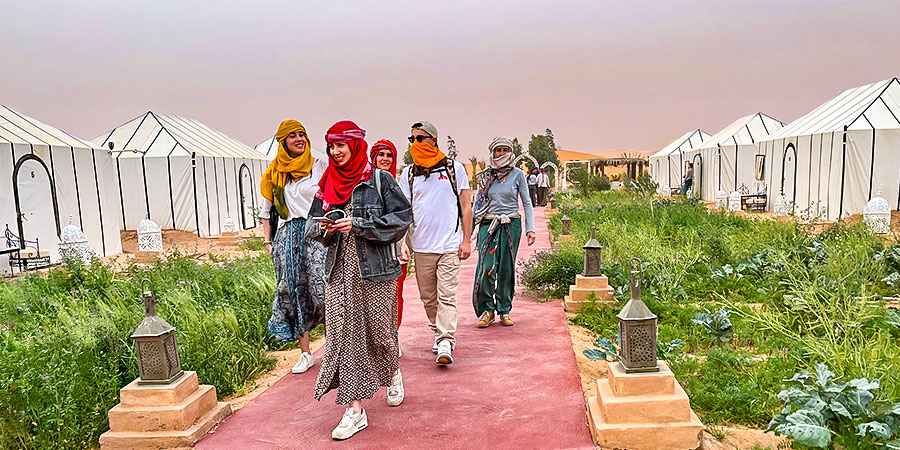
People Coming to the Desert, Morocco
|
Toilets:
Most midrange and top-end hotels and restaurants are facilitated with western-style flush toilets. However, in a country struggling with water shortages, you are more likely to find the squat-style toilets in public places. There’s often no toilet paper so keep a supply with you. Besides, a tip is needed for the attendant if you use a public toilet.
Customs and Taboos:
Islam has a far-reaching influence in Morocco’s social customs. When traveling, visitors shall learn some basic local customs and respect the religious habits of Muslims.
1. Muslims hold that right is better than left. When dealing with local people, you must use your right hand to pick up things. It is extremely impolite to shake hands with locals with your left hand.
2. Men should not take the initiative to talk with local women or take pictures of women without permission.
3. Don’t discuss about religious disputes and the political situation with local people.
4. Don't praise the other person's things, otherwise it will be thought as a way of asking for it from others.
5. When entering the mosque, you will be advised to take off your shoes and hats. Women need to wear long trousers and the hair should be covered with a scarf.
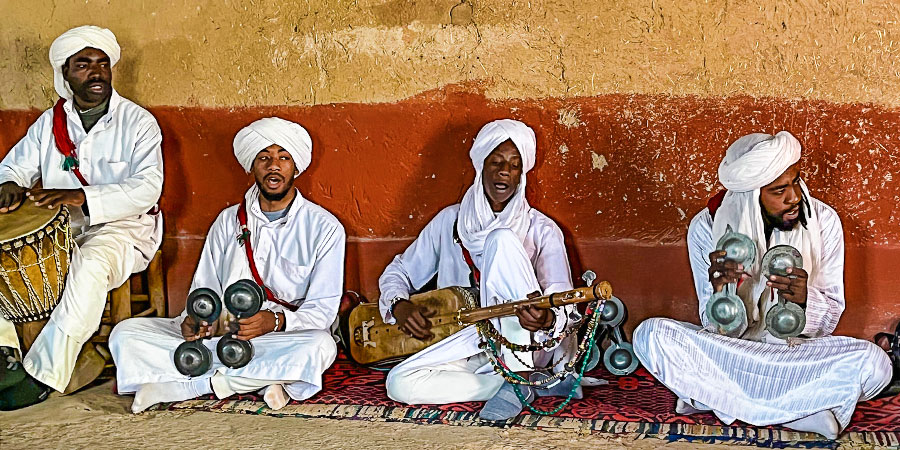
Local Performance in Merzouga
|
Internet Access:
WiFi is widespread in Morocco. Most high-end restaurants offer free WiFi, while most hotels still charges a small fee for WiFi service.
Voltage and Plug Types:
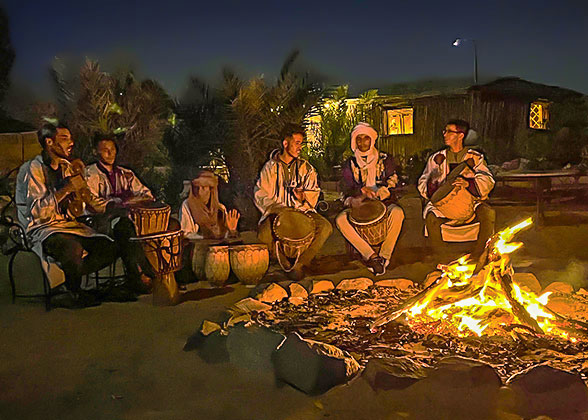
Travelers around a Campfire at Night
|
Safety Precautions:
Morocco is a rather safe travel destination in Arab countries. Just like traveling in other foreign countries, you shall keep an eye on your personal belongings like purse and electronic devices. Carrying a big sum of cash is not advised, and they are best placed separately. Besides, leave your jewelry home to travel light. Women should avoid wandering around alone at night, as there’s an attitude that all good women should be at home after dark. And get your luggage locked at hotel room before going out.
Emergency Numbers
Police: 19
Fire Alarm: 15
Emergency medical services: 15
Further Reading:
Things to Do in Morocco Morocco Transportation
You May Like
-
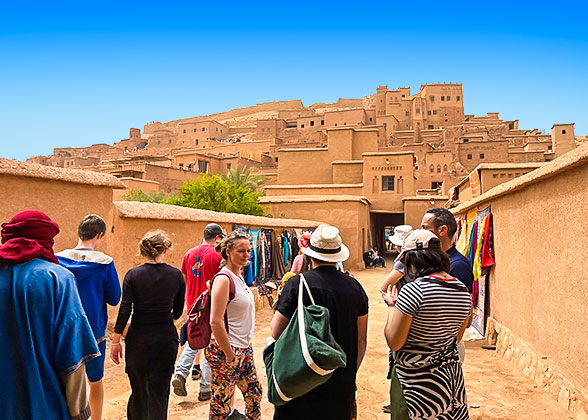 9 Days Casablanca - Rabat - Meknes - Fez - Midelt - Merzouga - Todra Gorges - Skoura - Ouarzazate - Marrakech from USD1706
9 Days Casablanca - Rabat - Meknes - Fez - Midelt - Merzouga - Todra Gorges - Skoura - Ouarzazate - Marrakech from USD1706 -
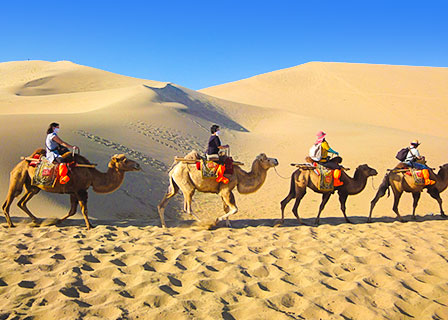 8 Days Desert Travel to Marrakech - Ouarzazate - Zagora - Merzouga - Erfoud - Todra Gorges - Ait Ben Haddou - Marrakech from USD1899
8 Days Desert Travel to Marrakech - Ouarzazate - Zagora - Merzouga - Erfoud - Todra Gorges - Ait Ben Haddou - Marrakech from USD1899 -
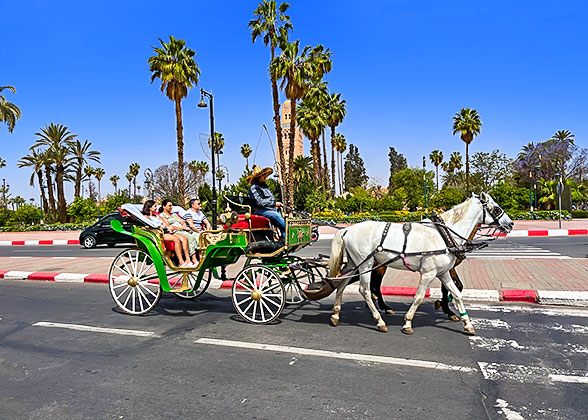 16 Days Morocco Discovery in Depth: Casablanca - Rabat - Asilah - Tangier - Chefchaouen - Volubilis - Meknes - Fez... from USD2885
16 Days Morocco Discovery in Depth: Casablanca - Rabat - Asilah - Tangier - Chefchaouen - Volubilis - Meknes - Fez... from USD2885


